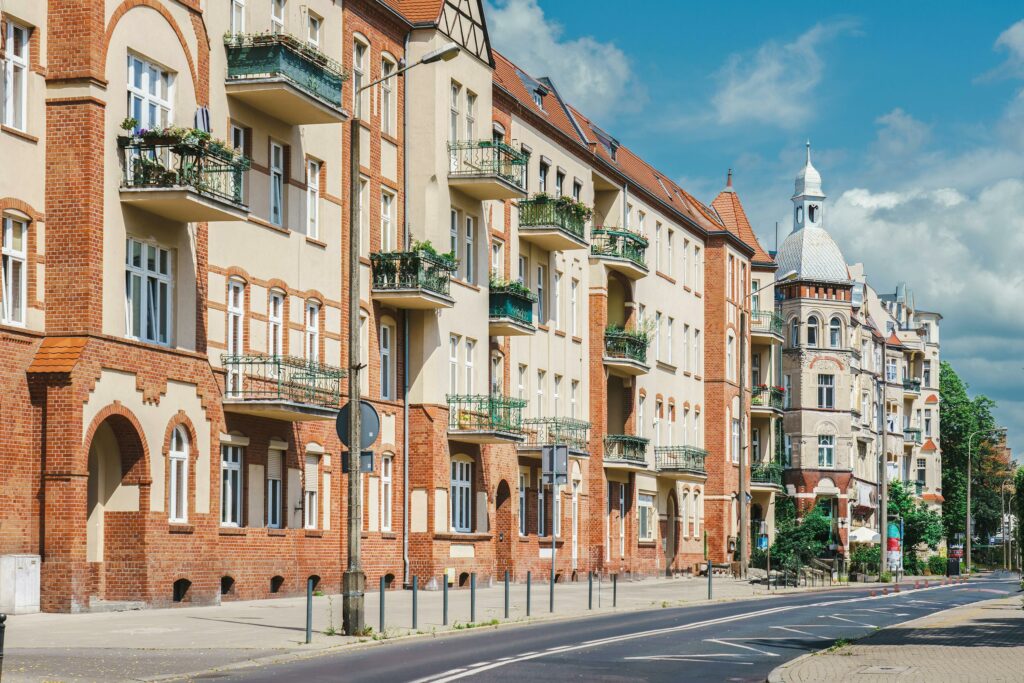Real Estate Investing: What It Actually Looks Like (Without the Hype)
So maybe you’ve heard someone say,
“You gotta get into real estate, it’s the best investment out there.”
And yeah—real estate can be great.
It can also be expensive, confusing, risky, and full of random surprises like surprise plumbing issues and tenants who ghost you.

But if you’re curious and you’re not trying to flip mansions overnight, here’s what real estate investing looks like in real human terms—mess, magic, money, and all.
🧠 First Off: What Is Real Estate Investing?
At its core, it’s buying property to make money—either by renting it out, selling it for more than you paid, or holding onto it while it appreciates (gains value) over time.
You can:
- Buy a house or condo and rent it out
- Buy multi-unit buildings and become a landlord
- Flip a property (buy → fix → sell)
- Invest in REITs (real estate investment trusts) if you’re more hands-off
Some people go big. Some buy one small property and chill. Either is valid.
💡 Why People Are Into It
Aside from everyone on YouTube making it look like a money printer, here’s why people love real estate:
💸 Cash Flow:
You can earn regular rental income each month. If done right, it can be steady and solid.
📈 Appreciation
Real estate tends to increase in value over time. Hold long enough and you can sell it for more later.
🧾 Tax Perks
Deductions, depreciation, write-offs—there are lots of ways real estate can lower your tax bill (with a good accountant).
🛠 Control
Unlike stocks, you have way more influence. You can fix it up, raise rent, improve value. It’s hands-on—but that’s a good thing for a lot of folks.
😬 But It’s Not All Sunshine and Zillow Scrolls
Let’s talk about what real estate investing isn’t:
- It’s not passive (at least not at first)
Even with a property manager, you’re still the decision-maker. - It’s not cheap
Down payments, closing costs, repairs, unexpected “uh-oh” moments… they add up. - It’s not a quick flip unless you really know what you’re doing
HGTV is fun to watch. In real life? Renovations run over budget and over schedule. Every time. - It’s not stress-free
Tenants don’t always pay on time. Pipes burst. Markets shift. Real estate will test your patience and your plumbing knowledge.
🛠 How to Get Started (Without Selling a Kidney)
1. Understand Your Goals
Are you trying to:
- Build long-term wealth?
- Replace your 9–5 income?
- Flip for fast cash?
Knowing your “why” helps you choose your “how.”
2. Start Small, Smart, and Local (If You Can)
You don’t need a 10-unit apartment complex in Miami. A single-family rental in a good neighborhood is a solid first step.
Can’t afford local prices? Look at nearby cities or towns with lower entry points but decent rental demand.
3. Run the Numbers (Not Just Vibes)
- What’s the mortgage?
- What will it actually rent for?
- What are the taxes, insurance, maintenance, property management?
Use conservative numbers. Expect things to cost more and take longer than you think.
If the math still makes sense? You might be onto something.
4. Decide: DIY Landlord or Hire Help?
Being a landlord means late-night calls and tracking down rent. Some people love it. Others… not so much.
You can always hire a property manager to handle the mess—but that’ll cost around 8–12% of your monthly rent. Worth it for your sanity, though.
5. Know That the First One Is the Hardest
You’ll overthink everything. You’ll triple-check your numbers. You’ll stare at spreadsheets like they hold the secrets to the universe.
That’s normal. Once you get your feet wet, it gets easier. The second property feels way less scary.
📉 Real Talk: You Can Lose Money
If you overpay, underestimate costs, or can’t find tenants, things can go sideways fast. This is why being “strategic” > being “excited.”
That said: if you do your homework, have a financial cushion, and stay calm during the weird stuff? You’ll be fine.
💬 Final Thoughts: Real Estate Is Not Just for Rich People (Anymore)
You don’t need to be a millionaire. You don’t need to own 12 properties to “make it.” You just need to start smart, stay steady, and treat it like a business—not a hobby.
It’s a long game. A learn-as-you-go game. But if you play it well? It can seriously change your life.







